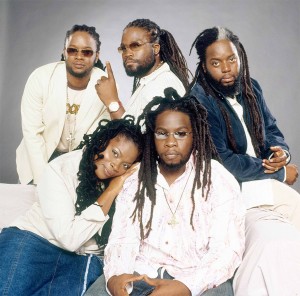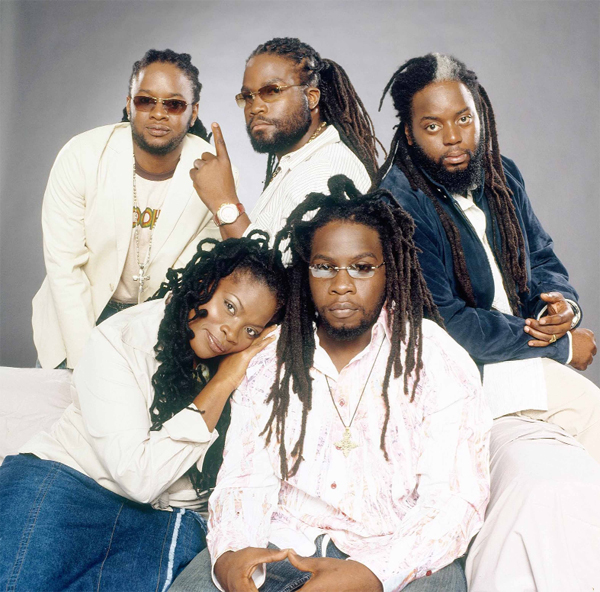The new Morgan Heritage album, ‘Mission in Progress,’ casts the band as the would-be saviours of roots reggae. Admittedly, not an easy task, and so far the results are mixed.
 On ‘Mission’ Morgan Heritage firmly plants its flags in Brooklyn – band members came of age in the US – and Kingston – they eventually established themselves in Jamaica after an ill-fated debut. The geography is important: Brooklyn is one of the capitals of rap/hip-hop, the music that has almost completely supplanted reggae as the medium for the dispossessed masses across the region, including Kingston. (G/T’s youth, so well versed in Lil Wayne’s expansive body of work can also testify to this fact.)
On ‘Mission’ Morgan Heritage firmly plants its flags in Brooklyn – band members came of age in the US – and Kingston – they eventually established themselves in Jamaica after an ill-fated debut. The geography is important: Brooklyn is one of the capitals of rap/hip-hop, the music that has almost completely supplanted reggae as the medium for the dispossessed masses across the region, including Kingston. (G/T’s youth, so well versed in Lil Wayne’s expansive body of work can also testify to this fact.)
Although the band conjures the image of a group of throwbacks to reggae’s roots tradition, ‘Mission’ – boasting a track titled “Brooklyn and Jamaica” – seeks to repurpose hip-hop in service of its roots reggae meditations on poverty, politics, social injustice, Rastafari and, of course, love. It is an understandable compromise, in the light of a trend by radio DJs who favour the evasion of pop, hip-hop and dancehall over the engagement of roots reggae in their selections – Wayne’s oeuvre is arguably as popular as Marley’s, and it took him less than a decade.
Morgan Heritage favourites like “Don’t Haffi Dread,” “Down by the River,” and “Leave the Young Girls,” prove that an audience is nevertheless there. Consider the fact that the day before the Guyana leg of the band’s current world tour, the lead singer Gramps told reporters here that the band never expects its songs to get the airplay that they have been receiving – an outcome he attributed to the lyrical content of the music, as well as the dominance of hip-hop. He used “Leave the Young Girls” as an example, explaining that while it has been favourably received it has hardly gotten any airplay in Jamaica. He said the Queen Ifrica song “Daddy Don’t Touch Me There” also received similar treatment.
He was unapologetic about portraying the reality of the Caribbean societies. Gramps also said that because of the growing the appeal of hip-hop among the young people, the band felt it was important to use it to get its message out.
He had told the website Yardflex.com, “The objective behind [the album] is to save the music. We want to do this by introducing the young generations to roots music.” He added, “The messages to be imparted will highlight real life situations affecting the international society. Children are having children, teachers are afraid to reprimand students. The social breakdown has to be addressed.”
But the hybridization of hip-hop and reggae is a continuing Morgan Heritage experiment that has so far been unconvincing. ‘Mission’ is a sound clash: The band’s quiet revolution, built on the limber bounce of the roots tradition, has become a cacophonous confusion that is nowhere near as interesting as the aggressive digital dancehall beats that now dominate the scene.
Compare two of ‘Mission’s’ best songs, the classic roots composition “Nothing to Smile About” and the lover’s rock special “Love You Right.” The former is almost elegiac, though teaming with an immense anger at the situation of the Jamaica’s poor; the latter, meanwhile, succeeds in spite of the interjection of a jarring rap that interrupts the song’s otherwise seamless movement. The sonic discrepancy is a recurring feature of the album. The quiet moments find Morgan Heritage at its best, while it consistently flounders under the weight of its greater ambitions, particularly its failure to appreciate the complexity that is demanded by hip-hop or good hip-hop anyway. A few capable guest artists (Stephen Marley recently drafted Mos Def for ‘Mind Control,’ while Wayne has never been shy about sharing his talents) might have solved the problem.
Fortunately, the real hope for roots reggae can be found in ‘Mission’s’ most important message: in progress.








